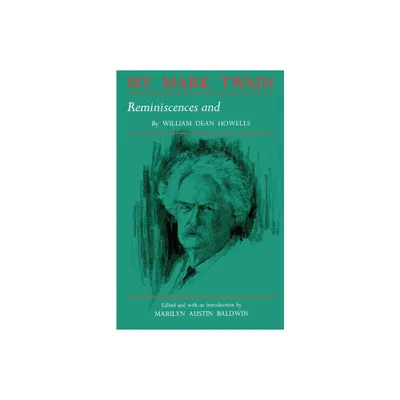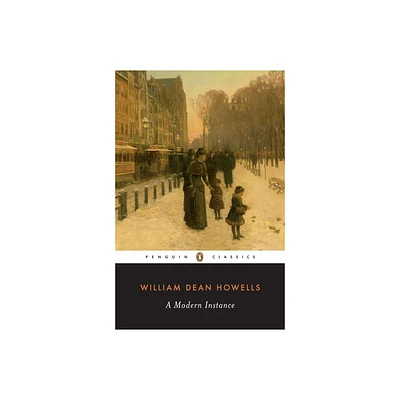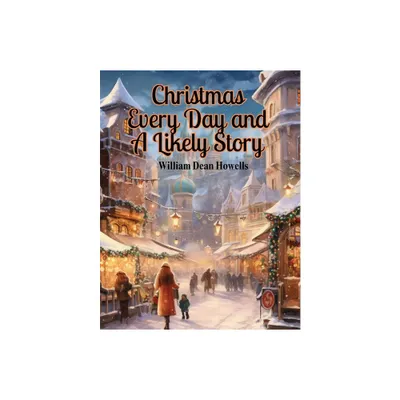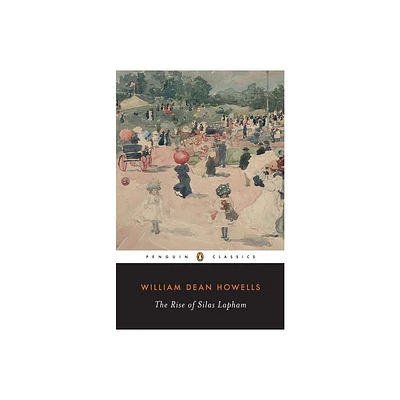Home
The Early Prose Writings of William Dean Howells, 1852-1861: 1852-1861
Loading Inventory...
Barnes and Noble
The Early Prose Writings of William Dean Howells, 1852-1861: 1852-1861
Current price: $49.95


Barnes and Noble
The Early Prose Writings of William Dean Howells, 1852-1861: 1852-1861
Current price: $49.95
Loading Inventory...
Size: OS
*Product Information may vary - to confirm product availability, pricing, and additional information please contact Barnes and Noble
While William Dean Howells is today best remembered as Mark Twain’s staunchest defender, Howells was, at his peak, the unrivaled man of letters in America: he had no contemporary equal. The achievements of both Twain and Henry James have since surpassed those of Howells in the literary hierarchy, but the work of Howells still remains an important part of American letters.
In
The Early Prose Writings of William Dean Howells, 1852–1861
, Thomas Wortham provides a chronological assortment of Howells’ first prose compositions, beginning with apprentice pieces published before the writer’s eighteenth birthday. Born in Martin’s Ferry, Ohio, Howells also lived in Hamilton, Dayton, Cincinnati, and Columbus, where Howells’ father, a printer and newspaper publisher, would move the family and set up shop.
Howells started writing as a newspaperman, and this volume assembles pieces by Howells which appeared in the
Ashtabula Sentinel
, the Kingsville
Academy Casket
, and the
Ohio Farmer
, as well as the complete text of “The Independent Candidate”—his first attempt in print of an extended work of fiction—serialized in the
in 1854–55. Also included here is Howels’ novela,
Geoffrey: A Study of American Life
, a thoughtful psychological study, which was never published, as well as Howells’ letters to the
New York World
, in which he recorded his impressions and experiences relating to Ohio’s early response to the declaration of the War Between the States.
Dr. Wortham furnishes extensive source annotations to document quotations and references as well as framing each selection by Howells with background and explanatory glosses. As he points out, “Howells’ literary life is not wanting in sufficient documentation,” but his apprentice work—“that long foreground which has in his instance been too largely represented by a handful of mediocre poems, has been lost in old files of newspapers, journals, and manuscripts.” Thanks to Dr. Wortham’s careful scholarship, American literature now has a much more detailed and accurate picture of the young Howells and his early works.
In
The Early Prose Writings of William Dean Howells, 1852–1861
, Thomas Wortham provides a chronological assortment of Howells’ first prose compositions, beginning with apprentice pieces published before the writer’s eighteenth birthday. Born in Martin’s Ferry, Ohio, Howells also lived in Hamilton, Dayton, Cincinnati, and Columbus, where Howells’ father, a printer and newspaper publisher, would move the family and set up shop.
Howells started writing as a newspaperman, and this volume assembles pieces by Howells which appeared in the
Ashtabula Sentinel
, the Kingsville
Academy Casket
, and the
Ohio Farmer
, as well as the complete text of “The Independent Candidate”—his first attempt in print of an extended work of fiction—serialized in the
in 1854–55. Also included here is Howels’ novela,
Geoffrey: A Study of American Life
, a thoughtful psychological study, which was never published, as well as Howells’ letters to the
New York World
, in which he recorded his impressions and experiences relating to Ohio’s early response to the declaration of the War Between the States.
Dr. Wortham furnishes extensive source annotations to document quotations and references as well as framing each selection by Howells with background and explanatory glosses. As he points out, “Howells’ literary life is not wanting in sufficient documentation,” but his apprentice work—“that long foreground which has in his instance been too largely represented by a handful of mediocre poems, has been lost in old files of newspapers, journals, and manuscripts.” Thanks to Dr. Wortham’s careful scholarship, American literature now has a much more detailed and accurate picture of the young Howells and his early works.


















